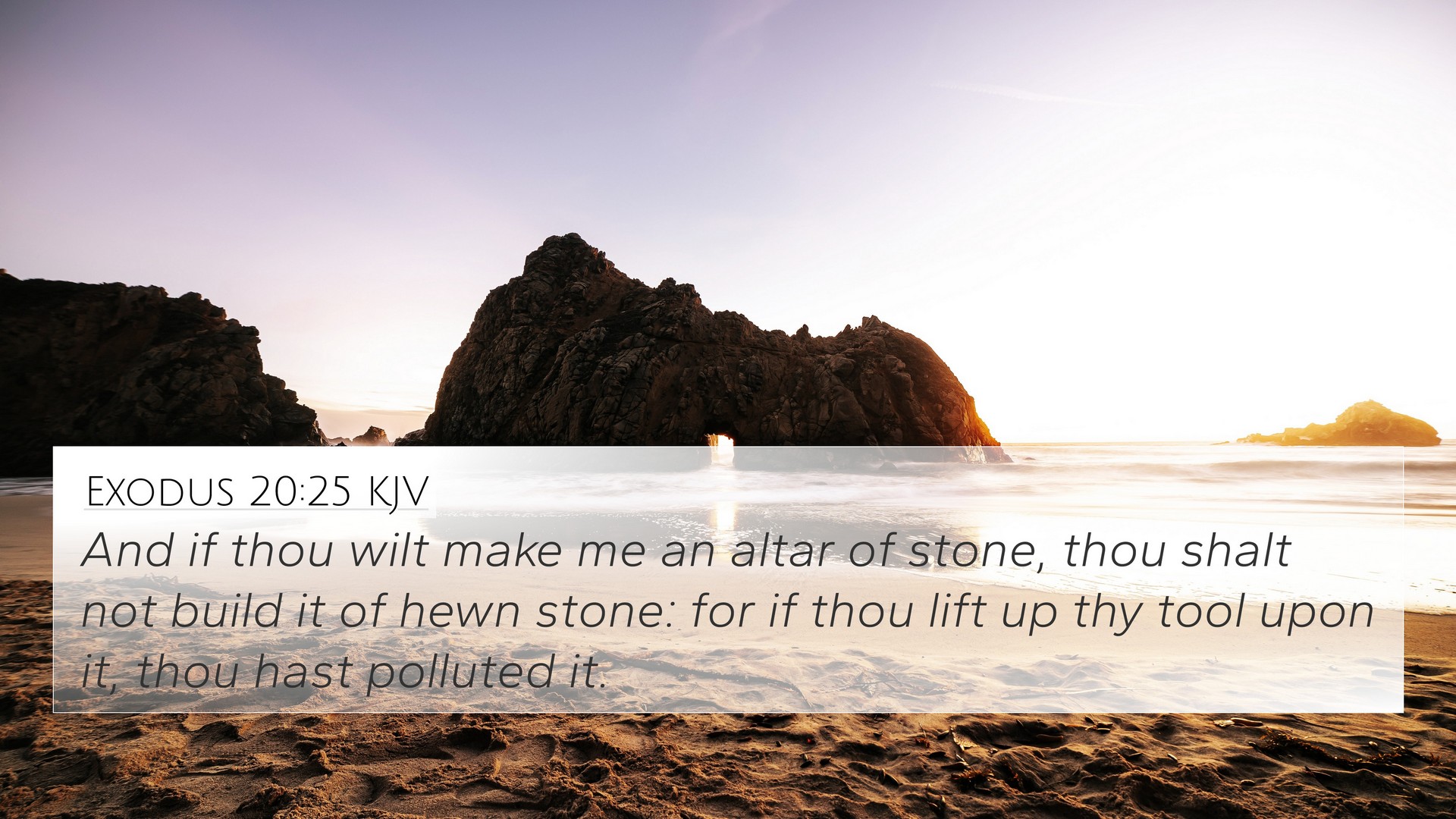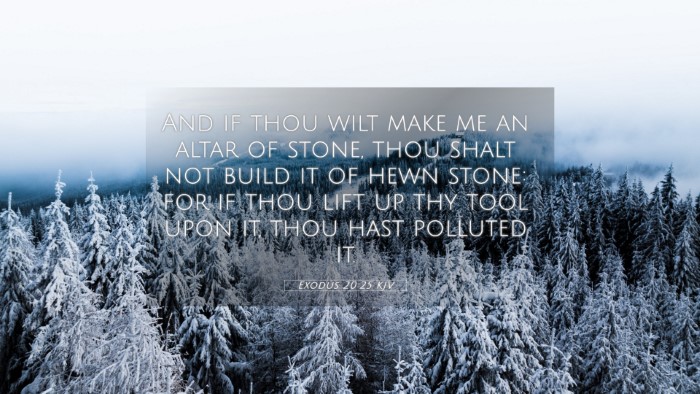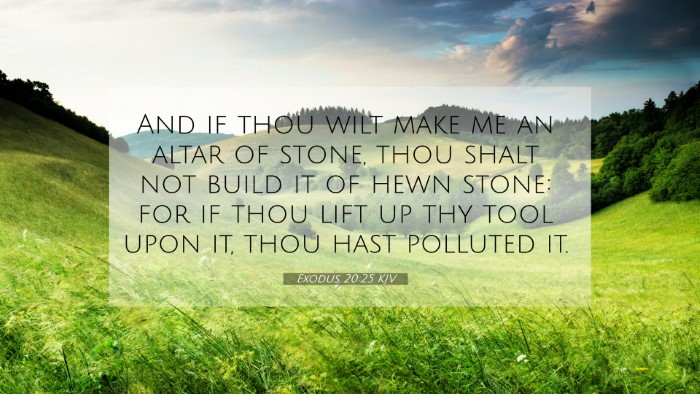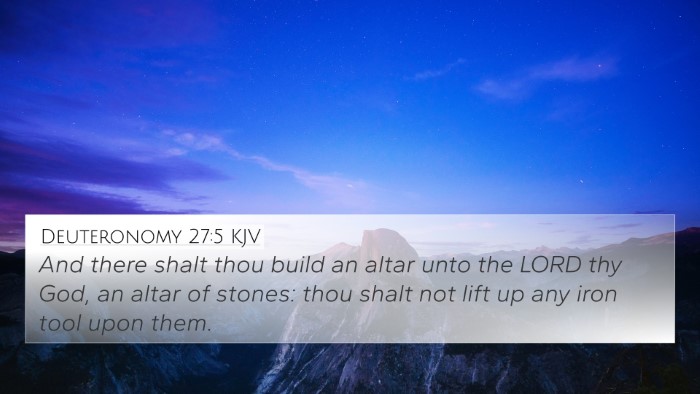Understanding Exodus 20:25
Exodus 20:25 states: "And if thou wilt make me an altar of stone, thou shalt not build it of hewn stone: for if thou lift up thy tool upon it, thou hast polluted it." This verse pertains to the instructions given to the Israelites regarding the construction of altars.
Meaning and Analysis
The message of this verse emphasizes the purity and simplicity required in the worship of God. Various public domain commentators offer insights into this directive:
-
Matthew Henry explains that the altar of unhewn stones reflects a humble approach to worship, avoiding the influence of human skill or pride. He notes that using natural stones signifies that it is not the craftsmanship but the worshiper's heart that is critical in seeking God.
-
Albert Barnes adds that the emphasis on unshaped stones is to suggest that the altars should not be the products of human ingenuity. He states that the purity of the altar represents the purity of worship that God desires.
-
Adam Clarke points out that the specific prohibition against using tools on the stones signifies that God wants a natural expression of worship. He interprets this as a call to refrain from conventional artistry, focusing instead on heartfelt devotion.
Thematic Connections
This instruction connects with many other biblical themes and verses, highlighting the importance of genuine worship and the avoidance of anything that might distract from it. Below are some related nuances and cross-references:
- Genesis 28:18: Jacob's altar made of unhewn stones reflects a similar principle of simplicity in worship.
- Deuteronomy 27:5: The Israelites are commanded to build altars of uncut stones, reiterating the call for purity and simplicity in their worship practices.
- 1 Samuel 15:22: The notion that obedience is better than sacrifice connects to the overall theme of God valuing sincere worship over ritualistic practices.
- John 4:24: Jesus teaches that true worshippers must worship in spirit and truth, echoing the idea that external adornments are less important than the internal state of the heart.
- Romans 12:1: Presenting our bodies as living sacrifices is a call to pure worship—a continuation of the theme found in Exodus 20:25.
- Hebrews 13:10: The mention of an altar brings in the New Testament understanding of Christ as the ultimate sacrifice, emphasizing genuine devotion over ritual.
- Matthew 5:23-24: Christ teaches about the importance of reconciliation before offering gifts at the altar, reinforcing the message of purity in worship.
Cross-Referencing Insights
Cross-referencing Biblical texts allows for a complete understanding of scriptural commands. By studying Bible verse cross-references, one can draw parallels and build a more comprehensive view of themes surrounding worship:
Connections Between Bible Verses
The Bible verse parallels in both the Old and New Testaments illustrate how the principle of worship transcends mere ritual to encompass one's heart and dedication to God. Utilizing tools like a bible concordance or a bible cross-reference guide can help uncover these connections.
How to Use Bible Cross-References
By aligning similar verses, readers can gain insights into how God wishes to be worshipped. This method is beneficial for Bible cross-reference study which helps deepen theological understanding.
Conclusion
In conclusion, Exodus 20:25 is a powerful reminder of the heart of worship, urging believers to approach God with sincerity and purity, avoiding the distractions of human workmanship. Through a careful examination of related texts, one can appreciate the fullness of biblical instruction on worship and the nature of relating to the divine.




